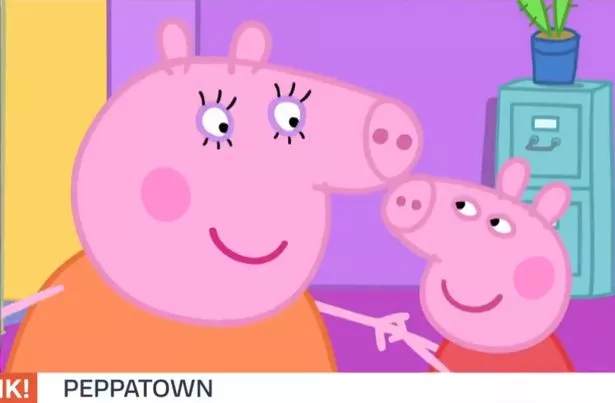Saskatchewan's Political Landscape And The Debate Over Western Separation

Table of Contents
Saskatchewan's Political History and Current Governing Party
Saskatchewan's political history is characterized by periods of both significant Progressive Conservative and NDP dominance. The province has traditionally leaned left, with the NDP holding power for considerable stretches throughout the 20th and early 21st centuries. Currently, the Saskatchewan Party, a center-right party, holds the reins of power, having won several consecutive elections. Their stance on Western separation is nuanced, reflecting the complexity of the issue within the province.
- Key political figures: The influence of figures like Brad Wall (former Premier) and current Premier Scott Moe significantly shapes the Saskatchewan Party's approach to federal relations and the Western separation debate.
- Major policy decisions: The Saskatchewan Party's focus on resource development and economic diversification reflects a desire for greater provincial control over its resources, a sentiment that resonates with those who support greater Western autonomy.
- Election results and trends: Consistent electoral victories for the Saskatchewan Party, even amidst rising support for Western separation in some circles, indicate a complex interplay of factors influencing voters' choices.
Economic Factors Fueling the Western Separation Debate in Saskatchewan
Saskatchewan's economy, heavily reliant on resource extraction (potassium, oil and gas, and agriculture), makes it particularly vulnerable to fluctuations in global commodity markets and federal policies. Many in the province feel that their economic interests are not adequately represented within the Canadian federation, leading to resentment and fueling the argument for Western separation.
- Impact of equalization payments: The debate around equalization payments – federal transfers to have-not provinces – is a significant point of contention. Some argue that Saskatchewan contributes disproportionately to the national economy yet receives insufficient benefits.
- Role of the resource sector: The resource sector plays a dominant role in Saskatchewan's economy and politics. Policies affecting these sectors directly influence the province's prosperity and contribute to the ongoing debate about the benefits and drawbacks of greater autonomy or separation.
- Economic arguments for and against separation: Proponents of separation argue that a separate Western Canadian nation would allow for more efficient resource management and economic policies tailored to the region’s unique needs. Opponents, however, highlight the potential economic disruption and instability that separation could cause.
Social and Cultural Factors Contributing to the Debate
Beyond economics, a strong sense of regional identity and distinct cultural values contributes significantly to the Western separation debate in Saskatchewan. Many Saskatchewan residents feel a disconnect from Central Canada, perceiving a lack of understanding of their unique challenges and priorities.
- Impact of differing views on federal policies: Disagreements over federal policies, such as environmental regulations and social programs, further exacerbate this sense of alienation.
- Influence of media and public opinion: The media plays a crucial role in shaping public opinion on this issue, with differing viewpoints contributing to a polarized debate.
- Role of grassroots movements and advocacy groups: Grassroots movements advocating for greater Western autonomy or separation contribute to the political discourse and exert pressure on political parties to address these concerns.
Political Parties and Their Stances on Western Separation in Saskatchewan
The positions of Saskatchewan's major political parties on Western separation are varied. While outright support for separation is not widespread, the issue of greater Western autonomy and control over resources is a significant point of debate across the political spectrum.
- Specific policy proposals: Each party offers different policy proposals that reflect varied approaches to federalism, ranging from greater provincial autonomy within Confederation to more assertive negotiation of resource management and economic policies.
- Support levels for each party's position: Public opinion polls show fluctuating levels of support for different approaches, indicating the ongoing complexity and evolution of the debate.
- Potential alliances and coalitions: The possibility of shifting alliances and coalitions among political parties based on their positions on Western autonomy and separation adds to the political uncertainty.
Potential Impacts of Western Separation on Saskatchewan
The potential consequences of Western separation for Saskatchewan are far-reaching and complex. Both significant challenges and potential opportunities exist.
- Economic repercussions: Separation could disrupt trade, investment, and resource management within the Western Canadian economy, creating both economic opportunities and significant risks.
- Social implications: The social implications are equally significant, impacting areas such as immigration, healthcare, and education.
- Geopolitical consequences: Separation would have geopolitical consequences, affecting international relations and national defense.
Conclusion: The Future of Saskatchewan in the Context of Western Separation
Saskatchewan's political landscape is deeply intertwined with the broader debate surrounding Western separation. Economic disparities, a strong sense of regional identity, and differing views on federal policies all contribute to this ongoing discussion. Understanding the nuances of Saskatchewan's political history, its current government's position, and the diverse perspectives within the province is crucial to comprehending the complexities of this debate. To stay informed about Saskatchewan's political landscape and understand the complexities of the Western separation debate, engage in the discussion surrounding Saskatchewan’s future by researching the positions of different political parties, participating in community discussions, and staying informed on the evolving political dynamics within Saskatchewan and the wider Western Canadian context.

Featured Posts
-
 Ripley And Perez Qualified For Wwe Money In The Bank Ladder Match
May 21, 2025
Ripley And Perez Qualified For Wwe Money In The Bank Ladder Match
May 21, 2025 -
 Challenging The Trans Australia Run World Record
May 21, 2025
Challenging The Trans Australia Run World Record
May 21, 2025 -
 Peppa Pigs Mum Announces New Babys Sex Social Medias Response
May 21, 2025
Peppa Pigs Mum Announces New Babys Sex Social Medias Response
May 21, 2025 -
 India Makes History 19 Paddlers At Wtt Star Contender Chennai
May 21, 2025
India Makes History 19 Paddlers At Wtt Star Contender Chennai
May 21, 2025 -
 The Traverso Family A Cannes Photography Legacy
May 21, 2025
The Traverso Family A Cannes Photography Legacy
May 21, 2025
